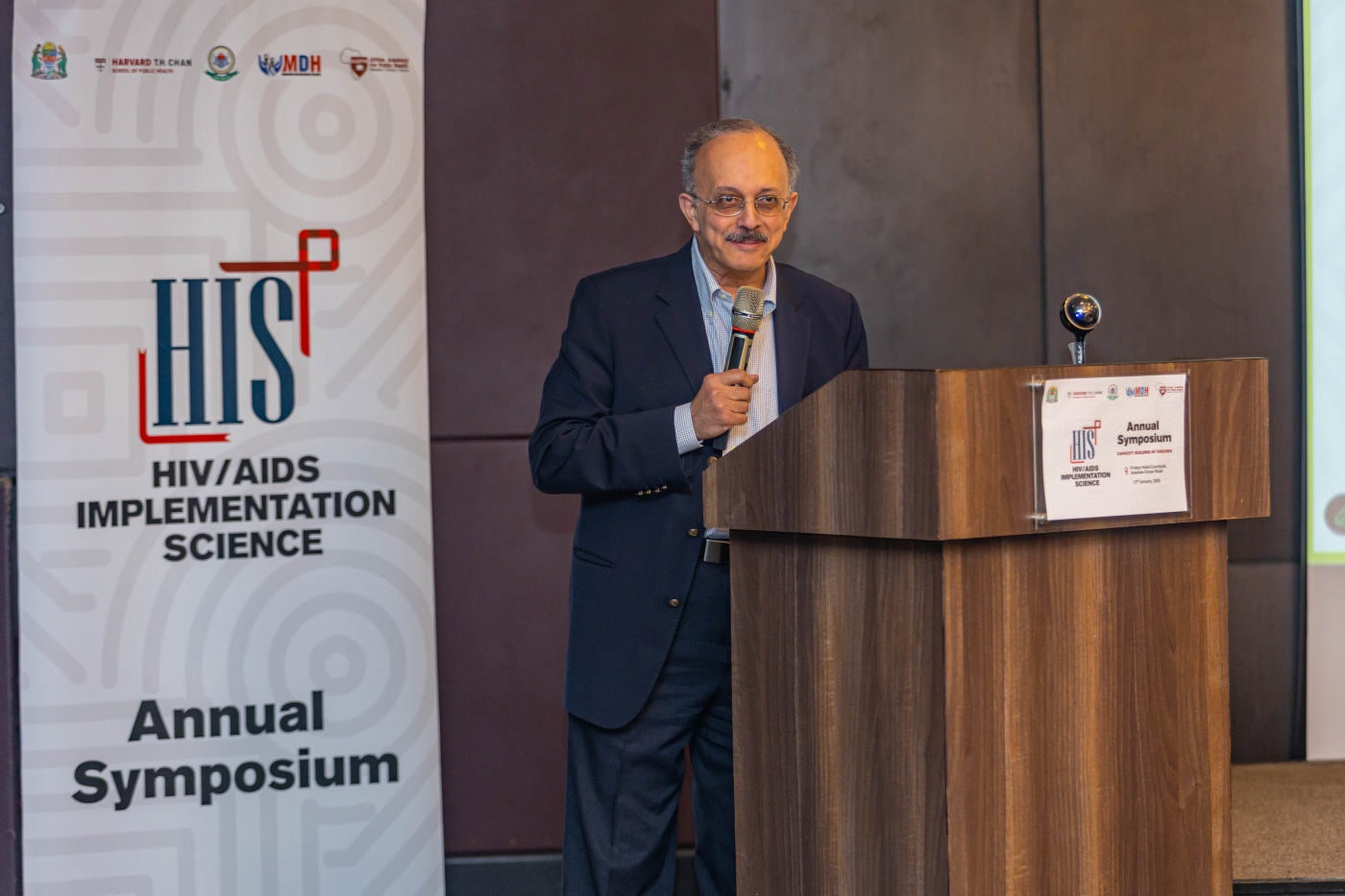
Tanzania continues to make meaningful strides in HIV/AIDS implementation science through collaborative research, training, and innovation. Building on the momentum of previous years, the HIV Implementation Science (HIS) Program, a long-standing partnership between Muhimbili University of Health and Allied Sciences (MUHAS), Africa Academy for Public Health (AAPH), and Harvard T.H. Chan School of Public Health hosted its 8th Annual HIS Symposium on January 17, 2025, at the Protea Courtyard Hotel in Dar es Salaam.
Held under the theme “Progress in Capacity Building for HIV/AIDS Implementation Science in Tanzania,” the full day’s symposium convened researchers, policymakers, health professionals, and HIS fellows to reflect on progress, share new evidence, and chart forward-looking strategies. It also served as a follow-up to discussions initiated in the 2024 (7th) symposium, which focused on HIV, nutrition, and non-communicable diseases (NCDs), recognizing the increasing double burden of under- and overnutrition among people living with HIV.
The symposium commenced with reflections on Tanzania’s foundational contributions to global HIV research and acknowledged persistent challenges such as stigma, mental health co-morbidities, and dependency on foreign funding. Keynote presentations highlighted the importance of implementation science in bridging evidence gaps for informed action, while potent discussions explored integrated HIV-NCD care, nutrition interventions, and the evolving role of artificial intelligence in health service delivery.
Highlights of the day were the dynamic presentations by HIS postdoctoral, PhD, and summer fellows. Their work spans across research on antiretroviral therapy-induced weight gain, HIV drug resistance, tuberculosis co-infection, and alcohol use among people living with HIV. These contributions underscored the program’s commitment to nurturing the next generation of HIV researchers in Tanzania.
The symposium concluded with a reaffirmation of the need for sustained investment in local research capacity, cross-institutional collaboration, and policy engagement. As HIS enters its eighth year of training and research excellence, having supported over 35 fellows to date, the program remains a cornerstone in advancing evidence-based, context-specific solutions to HIV/AIDS in Tanzania and beyond.
